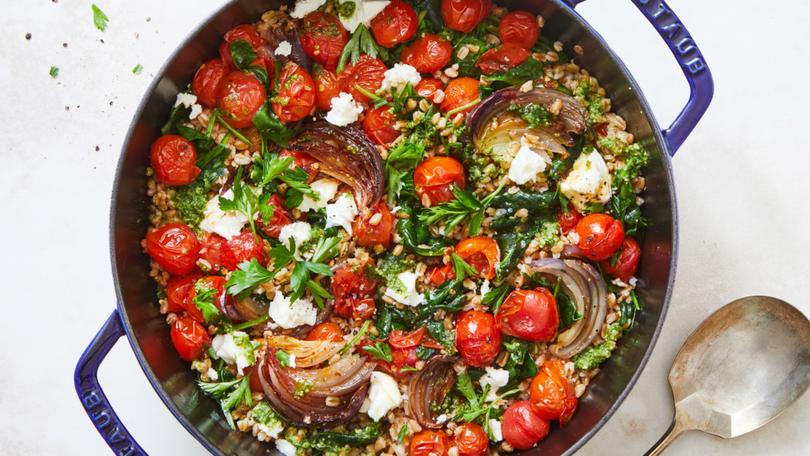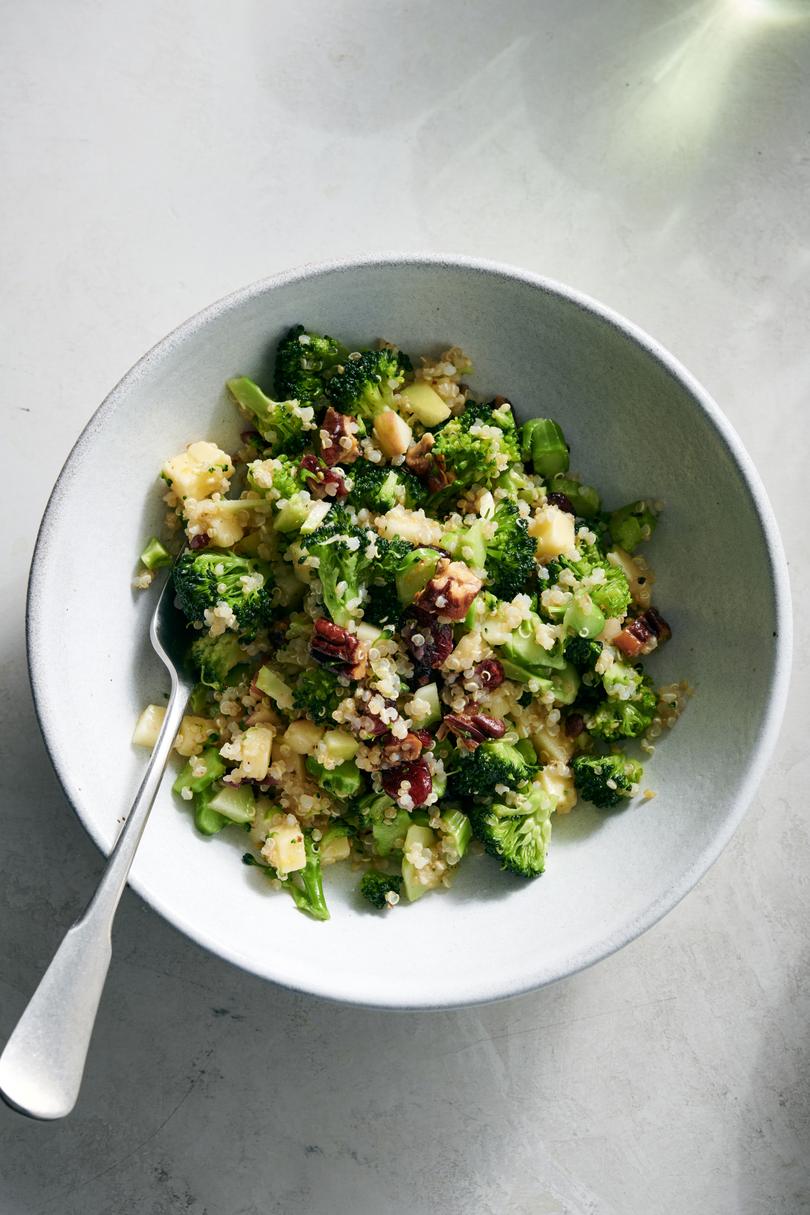The New York Times: The Mediterranean diet really is that good for you. Here’s why.
For the average person, the benefits of the Mediterranean diet most likely far outweigh any potential negatives.

In the 1950s, researchers embarked on an ambitious study. For decades, they scrutinized the diets and lifestyles of thousands of middle-aged men living in the United States, parts of Europe and Japan and then examined how those characteristics affected their risks of developing cardiovascular disease.
The Seven Countries Study, as it later became known, found associations between saturated fats, cholesterol levels and coronary heart disease. But the researchers also reported another notable result: Those who lived in and around the Mediterranean region had lower rates of cardiovascular disease than participants who lived elsewhere. Their diets seemed to have a protective effect.
Sign up to The Nightly's newsletters.
Get the first look at the digital newspaper, curated daily stories and breaking headlines delivered to your inbox.
By continuing you agree to our Terms and Privacy Policy.Since then, the Mediterranean diet has become the bedrock of heart-healthy eating, with well-studied health benefits, including lower blood pressure and cholesterol and a reduced risk of Type 2 diabetes.
“It isn’t a diet that was cooked up in the mind of some person to generate money,” said Dr. Sean Heffron, a preventive cardiologist at NYU Langone Health. “It’s something that was developed over time, by millions of people, because it actually tastes good. And it just happens to be healthy.”
The diet prioritizes whole grains, fruits, vegetables, legumes, nuts, seeds, herbs, spices and olive oil. Fish rich in omega-3 fatty acids, like salmon, sardines and tuna, are the preferred animal protein source. Other lean animal proteins, like chicken or turkey, are eaten to a lesser extent. And foods high in saturated fats, like red meat and butter, are eaten rarely. Eggs and dairy products like yogurt and cheese can also be part of the diet, but in moderation.

A glass or two of wine at dinner is also allowed, but there has been recent debate over whether alcohol still deserves a place in the diet. Research has found that even small amounts of alcohol can have negative consequences on health.
A number of rigorous studies have found that the Mediterranean diet contributes to better health, and in particular better heart health, in various ways. In one study, published in 2018, researchers assessed nearly 26,000 women and found that those who followed the diet most closely for up to 12 years had about a 25% reduced risk of developing cardiovascular disease. This was mainly because of changes in blood sugar, inflammation and body mass index, the researchers reported. Other studies, which analyzed men and women, have reached similar conclusions.
Research has also found that the diet can protect against oxidative stress, which can cause DNA damage that contributes to chronic conditions like neurological disease and cancer. And some studies suggest it can help reduce the risk of developing Type 2 diabetes and of experiencing cognitive decline.
The diet may have profound health benefits during pregnancy too, said Dr. Anum Sohail Minhas, an assistant professor of medicine at Johns Hopkins Medicine. In a 2022 study of nearly 7,800 women, researchers found that those who followed the diet most closely around the time they conceived and during early pregnancy had about a 21% reduced risk of any pregnancy complications, such as preeclampsia, gestational diabetes or preterm birth.
“There definitely seems to be a protective effect,” Minhas said.
And the authors of a 2023 review concluded that women who adopted the diet might have improved outcomes with in vitro fertilization.

On its own, though, the Mediterranean diet isn’t a panacea, Heffron said — it won’t eliminate your chances of developing cardiovascular disease, and it won’t cure a disease, either. It’s important that people also pay attention to other tenets of good heart health, like getting regular exercise and adequate sleep and not smoking.
Julia Zumpano, a registered dietitian who specializes in preventive cardiology at the Cleveland Clinic in Ohio, said that the diet could be conducive to weight loss, but that you would still need to pay attention to calories. Nutrient-rich foods like nuts and olive oil are heart-healthy, but the calories can add up quickly, so you should be mindful of portion sizes.
Rather than being viewed as a hack for weight loss, the Mediterranean diet should inspire a long-term shift in eating behavior. In one study of more than 30,000 people living in Italy, for instance, researchers found that those who followed the diet most closely for about 12 years were less likely to become overweight or obese than those who followed the diet less closely.
A smaller study, published in 2020, enrolled 565 adults who had intentionally lost 10% or more of their body weight in the year before. It found that those who reported adhering to the Mediterranean diet closely were twice as likely to maintain their weight loss as those who did not closely follow the diet.

If you’re just starting to follow the diet, limited evidence suggests that you may notice some cognitive improvements — including in attention, alertness and contentment, according to one review of studies published in 2021 — within the first 10 days or so. But for there to be sustained, long-term payoffs in terms of heart health, people need to stick with it, Zumpano said, ideally for their whole lives.
That said, she added, the diet allows for some flexibility; the occasional cake or steak won’t undo its overall benefits.
And because it usually provides a balanced blend of nutrients and adequate protein, there are usually no significant risks associated with following it, Heffron said.
Still, you may want to make sure that you are getting enough iron, since the diet recommends minimizing or avoiding red meat. Good sources include nuts, tofu, legumes, and dark leafy green vegetables such as spinach and broccoli. Foods rich in vitamin C, including citrus, bell peppers, strawberries and tomatoes, can also help your body absorb iron.

And because the diet minimizes dairy, you may want to speak with your doctor about whether you need to take a calcium supplement.
For the average person, the benefits of the Mediterranean diet most likely far outweigh any potential negatives. “These are things we can all try to incorporate into our lives,” Minhas said.
This article originally appeared in The New York Times.
© 2024 The New York Times Company
Originally published on The New York Times
